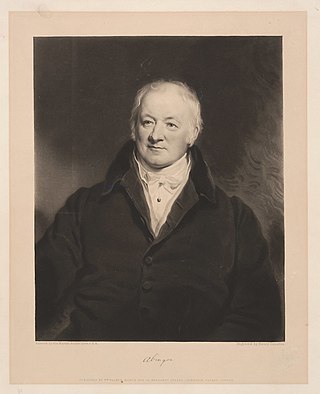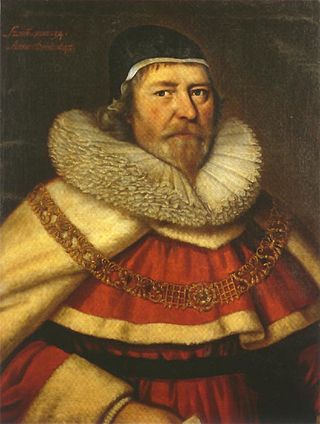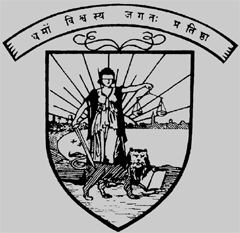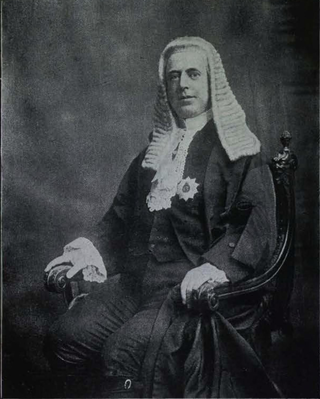SirJohn William Fisher Beaumont, QC, PC (4 September 1877 – 8 February 1974) was the Chief Justice of the Bombay High Court. [1]
Contents

SirJohn William Fisher Beaumont, QC, PC (4 September 1877 – 8 February 1974) was the Chief Justice of the Bombay High Court. [1]

Beaumont was born in St Pancras, London in 1877. His father Edward Beaumont was also Bar-at-law. He was educated at Winchester College and Pembroke College, Cambridge. [2] Beaumont passed B.A. with First Class in 1899 and received a scholarship. In 1901, he was called to the Bar by the Lincoln's Inn. [3]
After Sir Amberson Barrington Marten, Beaumont became the Chief Justice of the Bombay High Court in 1930 and was in office till 1943, thus held that office for the longest period in the history of the High Court. [3] He was knighted in the 1931 New Year Honours, [4] [5] and was several times called upon to act temporarily as a judge of the Federal Court of India. Beaumont worked there from 1942 to 1943. He was also appointed a member of the Judicial Committee of the Privy Council.[ citation needed ]
He died in 1974 and was buried on the west side of Highgate Cemetery.

James Scarlett, 1st Baron Abinger, was an English lawyer, politician and judge.

The Law Society of England and Wales is the professional association that represents solicitors for the jurisdiction of England and Wales. It provides services and support to practising and training solicitors, as well as serving as a sounding board for law reform. Members of the Society are often consulted when important issues are being debated in Parliament or by the executive. The Society was formed in 1825.

The chief justice is the Republic of Fiji's highest judicial officer. The office and its responsibilities are set out in Chapter 5 of the 2013 Constitution of Fiji. The chief justice is appointed by the president on the advice of the prime minister.
Sir John Leonard Stone, OBE, QC was the last British chief justice of the High Court of Bombay, serving from 30 September 1943 until 1948.

Sir John Bankes was an English lawyer and politician who sat in the House of Commons between 1624 and 1629. He was Attorney General and Chief Justice to Charles I during the English Civil War. Corfe Castle, his family seat was destroyed during a long siege, in which his wife Mary Hawtrey became known as Brave Dame Mary.

The Government Law College, Mumbai,, India, founded in 1855, is the oldest law school in Asia. The college, affiliated to the University of Mumbai, is run by the Government of Maharashtra.

Mohammad Hidayatullah was the 11th Chief Justice of India serving from 25 February 1968 to 16 December 1970, and the sixth vice president of India, serving from 31 August 1979 to 30 August 1984. He had also served as the acting president of India from 20 July 1969 to 24 August 1969 and from 6 October 1982 to 31 October 1982 and from 25 July 1983 to 25 July 1983 and from 25 July 1984 to 25 July 1984. He is regarded as an eminent jurist, scholar, educationist, author and linguist.

Sir Harilal Jekisundas "H. J." Kania was the first Chief Justice of India. He served as the Chief Justice of India from 1950 to 1951. He died while serving in office in 1951.

Sir Edward John Gambier (1794–1879) was a colonial jurist and law officer, who served as a judge in British India, Chief Justice of Madras and Recorder of Penang, Singapore, Malacca.
Sir Alexander Fraser Russell,, publicly known as Sir Fraser Russell, was three times acting Governor of Southern Rhodesia as well as its long-serving Chief Justice.
Right Hon. George Augustus Chichester May PC, QC was an Irish judge.

Sir William Lee-Warner was a British author and colonial administrator in the Indian Civil Service. He was Chief Commissioner of Coorg in 1895. In 1907 he headed the eponymous Lee Warner Committee that examined Indians receiving education in Britain.

Sir Lyttleton Holyoake Bayley, was an English lawyer who served as Attorney-General of New South Wales, Acting Chief Justice at the Bombay High Court and Advocate-General of Bombay. He was also an amateur cricketer who played in 16 first-class cricket matches.
The chief justice of the Leeward Islands headed the Supreme Court of the Leeward Islands.

Sir Lawrence Hugh Jenkins, KCIE, was a British judge. He was the chief justice of the Calcutta and Bombay High Court, as well as a member of the Judicial Committee of the Privy Council.
SirArthur Trevor Harries was a British Indian Judge of High Courts of India. He was the Chief Justice of Patna, Lahore and Calcutta High Court.
Sir Horace Owen Compton Beasley OBE was the Chief Justice of the Madras High Court from 1929 to 1937.
{{cite book}}: CS1 maint: numeric names: authors list (link)